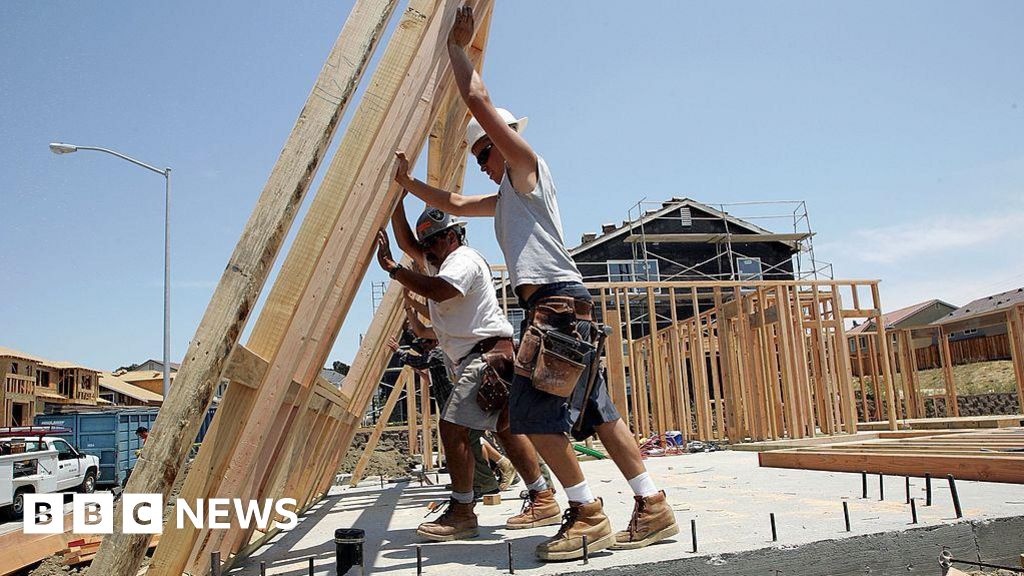Mr O’Gorman and Dr Dagher say that another technique, modular construction, could make building more efficient.
It involves manufacturing parts of the building in a factory, transporting them to the site and lifting them into place.
“I’m convinced that it is the future, the quality of construction is so much better. On a construction site you get so many little errors,” Dr Dagher says.
“The more you can do in a factory, the better. Quality control is clearly so much superior, and the quality of the finish as well.”
However, this technology, too, has failed to take off, says Neil Jefferson, managing director of the UK Home Builders Federation.
“The problem with manufacturing housing is that you book your stuff in the factory to build those homes, and the materials arrive and you need to stick to the plan,” he says.
“But at the moment in this country, because of the government’s approach to planning policy, projects are beset with delays. And that just doesn’t work, you need a more flexible approach.”
Developers need a certain amount of confidence that they’ll be able to sell their houses quickly once complete, and often need to alter plans as a project continues as the market changes. This is less of an issue with projects for local authorities or housing associations, but can be a problem for private developers.
Credit: Source link











